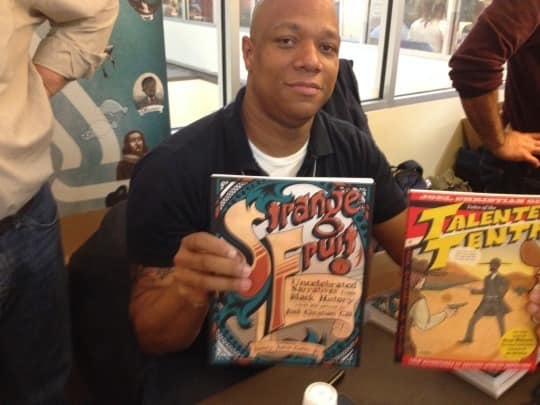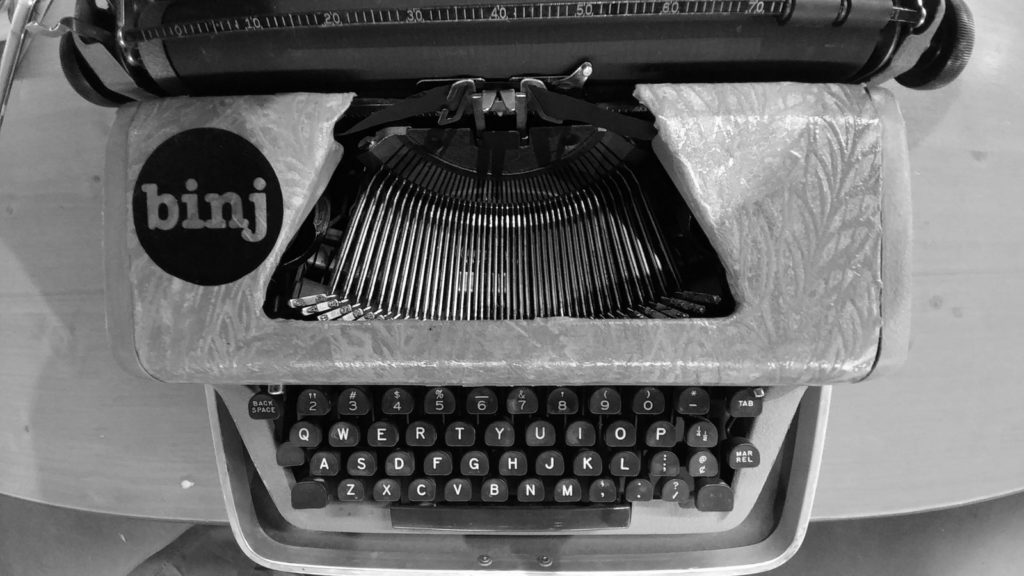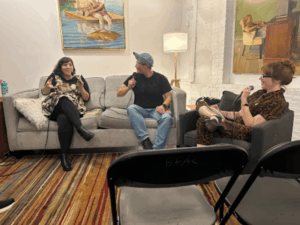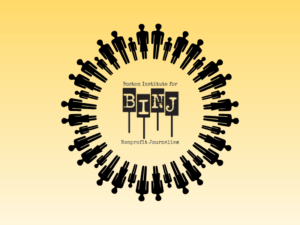On Curating A Comprehensive Chronicle Of Comics
“A first class education on the subject and opportunities to experience exhibits of such quality. Something really special is happening.”
The immense impact that comic books have had on modern pop culture is evident everywhere you look. It’s part of the success behind prestige TV projects like The Boys, blockbuster movies like Spider-Man: No Way Home, and even smaller cult favorites like Sandman, Peacemaker, Invincible, Watchmen, Umbrella Academy, and Loki.
The revelation that comics aren’t simply for kids is almost as old as the artform itself. Since the start of the medium, strips and books have offered underrepresented creators a way to share their stories. With tales of superheroes, real-life villains, and the supernatural rubbing elbows with excerpts of Black history and the struggles of the LGTBQ+ population, comic books have always been unique vessels for the less powerful to educate, empower, and entertain.
Award-winning cartoonist, author, and historian Joel Christian Gill’s newest exhibit, Comics Is A Medium, Not A Genre, is up now through March 24 at Boston University’s Stone Gallery and speaks to the depth of the history of comics, highlighting more than 200 pieces of influential work. Appointed as the inaugural chair of the Department of Visual Narrative at BU last summer, Gill said the idea began a few years prior. He graduated from the university in 2004 on a full ride and even received a scholarship named for the famed New Yorker and Saturday Evening Post cartoonist Constantin Alajalov—a fact he sees as somewhat fateful.

As one order of business, after Gill joined the faculty last year, he began working on moving the Massachusetts Independent Comics Expo (MICE) from Lesley University to BU. He then started calling collectors and creators alike to see if they would be interested in showcasing artwork at his exhibit.
“I came back 20 years to the day, and everything feels like it’s meant to happen,” Gill said. “This exhibit has so many items that are a part of the full depth and breadth of comics history, like Harvey Kurtzman’s first attempt at a graphic novel to some of the work that sparked the hearings on comics in the 1950s.”
In addition to work by legends like Kurtzman, Bernie Wrightson, Art Spiegelman, Will Eisner, Trina Robbins, and Kim Deitch, there are pages from underground, indie, and modern artists. The exhibit also features Charles M. Schulz’s first Peanuts comic (1950), on loan from the Library of Congress. Gill made sure he collected works made with varying tools, including watercolor and acrylic paints, embroidery, collage, cardstock, and the latest digital techniques. Among their sources, the curators reached out to underground cartoonist and collector Denis Kitchen, who represents the estates of Kurtzman, Eisner, and Al Capp. Gill said Kitchen lent the exhibit some “true gems” including underground comics from the ’50s and, in particular, an early collaboration between Kurtzman, founder of Mad magazine and comic book legend Bill Elder.
 Kitchen, who is known for creating black and white “underground” comic books and the now-defunct Kitchen Sink Press, said each generation of alternative and underrepresented voices finds its own most efficient way to spread their message, adding that comics have remained a universal medium for such expression. During his time as a publisher, Kitchen released titles like Kings in Disguise (an early example of historical fiction with political passion) and Omaha the Cat Dancer, an erotic soap opera that touched on themes of feminism, gay relationships, and disabilities. He also launched Gay Comix in the late ’70s.
Kitchen, who is known for creating black and white “underground” comic books and the now-defunct Kitchen Sink Press, said each generation of alternative and underrepresented voices finds its own most efficient way to spread their message, adding that comics have remained a universal medium for such expression. During his time as a publisher, Kitchen released titles like Kings in Disguise (an early example of historical fiction with political passion) and Omaha the Cat Dancer, an erotic soap opera that touched on themes of feminism, gay relationships, and disabilities. He also launched Gay Comix in the late ’70s.
“I always encouraged female writers and artists, and supported projects I loved, even if the marketing prospects might have seemed dim,” Kitchen said in an interview. “I see many people out there now with comparable passion and it makes me optimistic that we’ll continue to see amazing works continue to emerge. … I’m delighted to see such a wonderful exhibit of original comic art at Boston University with prime examples of the many facets of this magical combination of words and pictures we call comics. I’m thrilled that Joel Christian Gill is helming the new department at BU and that students interested in comics will get a first class education on the subject and opportunities to experience exhibits of such quality. Something really special is happening.”
As a creator himself, Gill has found success in using comics to share his own story—his memoir, Fights: One Boy’s Triumph Over Violence, was picked in 2020 by the New York Times as one of the year’s best graphic novels. Prior to Fights, Gill released the acclaimed series Strange Fruit: Uncelebrated Narratives from Black History and Tales of The Talented Tenth, which tell the stories of Bass Reeves, Bessie Stringfield, and Robert Smalls. In addition to teaching, Gill is currently working on the graphic novel of Ibram Kendi’s Stamped From the Beginning: The Definitive History of Racist Ideas in America, forthcoming from Ten Speed Press in 2023.
Gill said graphic novels offer a gateway form of literature for teenagers, and adults are finding them to have as much depth and complexity as prose works. Each of the creators featured in the exhibit, he said, tried to share American history through their lens via the medium of comics.
“Comics have allowed people to say this is my country and this is my history as well,” Gill said. “I picked some of these pieces in particular to show you how American Black people are, we’re not the exotic other and here’s the proof. We’ve lived through quintessentially American things. Comics are a really sneaky way of teaching people as well. We all have this shared understanding through semiotics and comics have a way of engrossing you in the story. That cuts across all genres of comics, journalism, medicine, historical and graphic novels. It’s like holding a movie in your hand.”

As a former writer and editor for DC Comics, Milestone, Lion Forge, and other publishers, Joseph P. Illidge spends his time—in between serving as Executive Editor of Heavy Metal—speaking and teaching young people about the power of comic books. Illidge was the first editor of color for the Batman and Batgirl books at DC Comics and his latest graphic novel, MPLS Sound, centers around a fictional ’80s Minneapolis funk band led by a Black woman inspired by legendary musician Prince.
A friend and former colleague of Gill, Illidge was one of the first people to help with the installation by providing an introduction for one section of the exhibit. “Every superhero, spy, sage, sentinel, scholar, soldier, star child, and sorcerer is a statement. The evidence of our dreams and guide post for our futures,” he writes in the missive reflecting the history of BIPOC comic books.
Gill additionally tapped creators including Dan Mazur and Hillary Chute to write companion pieces to accompany the artwork.
“I think the history of comic books is really the history of America,” Illidge said. “I think through all of the social movements you’ve seen examples of comic books reflecting those moments. For BIPOC communities, comics have held a place for people, no matter the genre of story. Comics speak to our place in the world and offer a stage to state our stories. I think that’s especially important with the current rash of book banning going on, which has focused on memoirs, people of color, and sexual lifestyles that aren’t heteronormative.”


 This article is syndicated by the
This article is syndicated by the 





